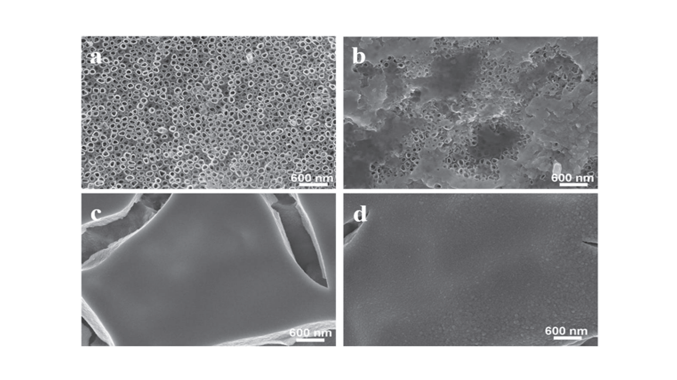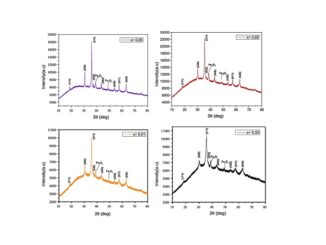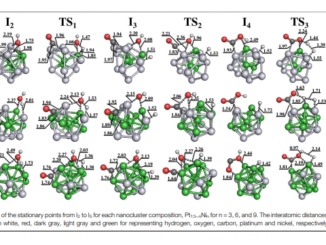
The Substrate Morphology Effect for Sulfur-Rich Amorphous Molybdenum Sulfide for Electrochemical Hydrogen Evolution Reaction
Abstract: Amorphous molybdenum sulfide (MoSx) is a promising material for hydrogen evolution reaction (HER) due to its nearly zero hydrogen adsorption free energy at the sulfur (S) edge-sites. To prepare more efficient MoSx-based electrocatalysts, new attempts are required to increase the exposure of the MoSx lateral size and, therefore, increase the S atom’s contents. The majority of studies reported in the literature investigate MoSx over conductive substrates. However, MoSx can be electrodeposited over inexpensive and chemically stable platforms, such as semiconductors. This work presents the semiconductor substrate morphology effect for prepared sulfur-rich MoSx for electrochemical hydrogen evolution reaction. The electrodes are prepared by cyclic voltammetry with 25 cycles over TiO2 film and TiO2 nanotubes (TiO2NT) substrates. The MoSx deposit on TiO2NT presents an increase S atoms contents and exhibits excellent HER activity with a low overpotential of 93 ± 7.5 mV to reach −10 mA cm−2 and a higher exchange current density equal to 91 μA cm−2, and a smaller Tafel slope of 43 mV dec−1.
Author(s): Medina, M.; Corradini, P.G.; Brito, J.F.; Santos, H.L.S.; Mascaro, L.H.
Journal of The Electrochemical Society
Published: 16 February 2022 Volume 169, Number 2
CDMF
The CDMF, hosted at the Federal University of São Carlos (UFSCar), is one of the Research, Innovation and Dissemination Centers (RIDC) supported by the São Paulo State Research Support Foundation (Fapesp), and also receives investment from the National Council Scientific and Technological Development (CNPq), from the National Institute of Science and Technology of Materials in Nanotechnology (INCTMN).




